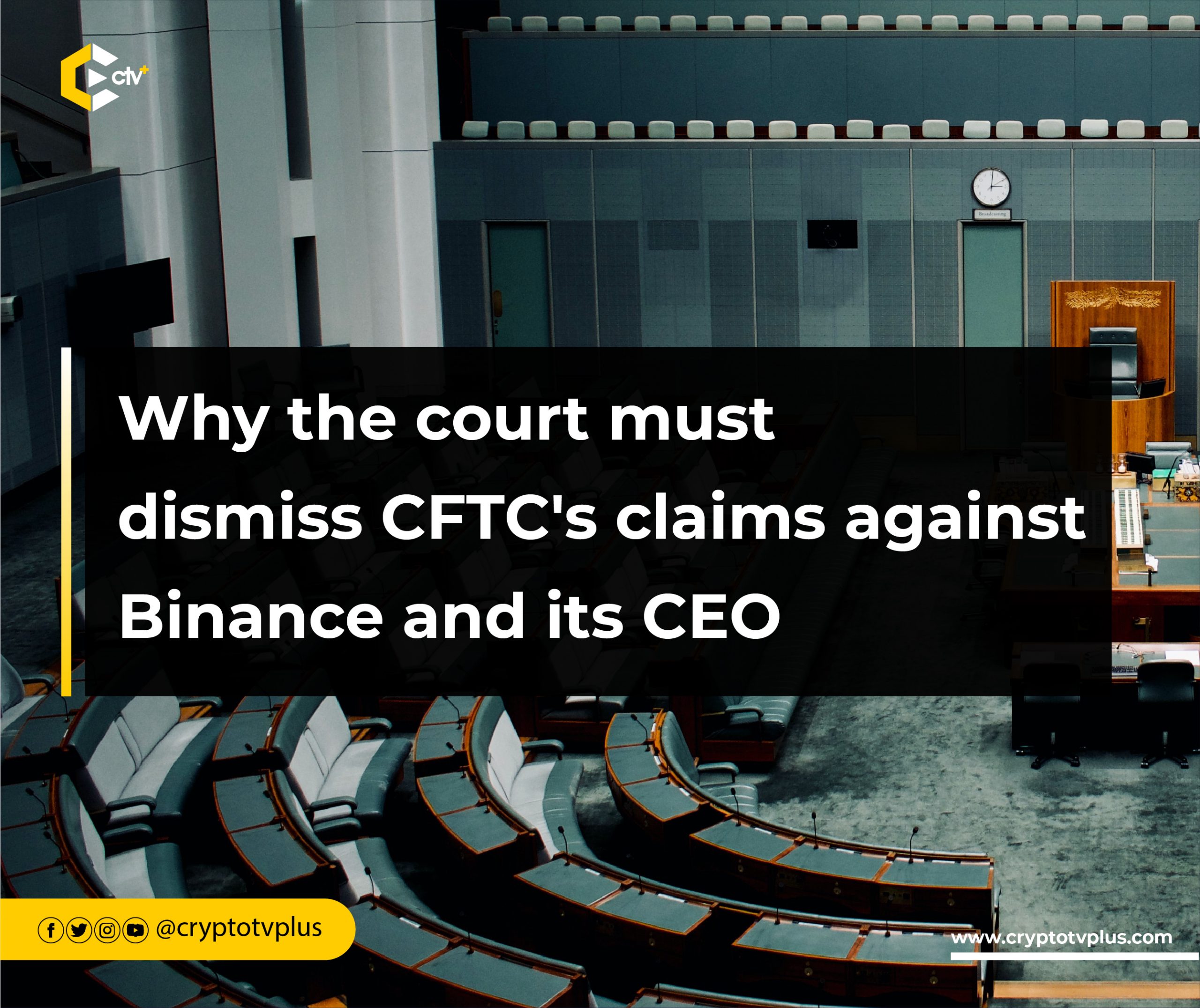FEATURED
Why the court must dismiss CFTC’s claims against Binance and its CEO

Following the U.S. Commodity Futures Trading Commission (CFTC) lawsuit against Binance, the crypto exchange and its CEO have said in a motion that the regulator is threading beyond its boundaries. Also, stated reasons why the court must dismiss the CFTC’s claims.
Binance and Changpeng Zhao have motioned that the CFTC is seeking to regulate foreign entities operating outside the United States. This represents an attempt by the CFTC to exert influence beyond its traditional scope, as it has no regulatory authority over spot trading, even within the United States, let alone abroad.
The motion argues that this move exceeds the regulator’s statutory authority.
Furthermore, the CFTC is being inconsistent in its legal arguments and enforcing regulations inappropriately. The motion requests that the court restore the agency to its proper boundaries.
Looking at the irregularities of the CFTC lawsuit and approach, the motion is suggesting that the court should dismiss the claims against the accused, Binance and Changpeng Zhao. According to Binance and the CEO, there are four reasons upon which the claims must be dismissed and they include:
First and foremost, the CFTC’s complaint lacks sufficient evidence to establish personal jurisdiction over the Foreign Binance Entities and Mr. Zhao. Additionally, the motion highlights that the CFTC is using the term “Binance” without distinguishing individual defendants, whereas the law requires each defendant’s contacts with the forum to be assessed individually.
Furthermore, Counts I through VI should be dismissed as they pertain to claims outside the CFTC’s jurisdiction and fail to provide evidence of engagement in any domestic transactions.
Thirdly, Counts I, III, V, and VI should be dismissed due to insufficient evidence provided by the CFTC. The complaint fails to establish a proper connection between the registration categories intended for traditional financial markets and the Binance.com crypto exchange. If the CFTC wishes to include crypto exchanges within these registration categories, it should seek congressional approval or utilize its rulemaking authority instead of misinterpreting existing provisions.
Furthermore, the Court should dismiss Count VII, as the CFTC has never previously invoked this provision to bring a claim. By doing so now, the CFTC is testing the anti-evasion claim against an industry and products that either did not exist or were not considered at the time the regulation was established in 2012.
Read also;
CBN Orders Lifting of Account Restrictions on Crypto Exchange and Fintech Companies
What do you think of this article? Share comments below.
























